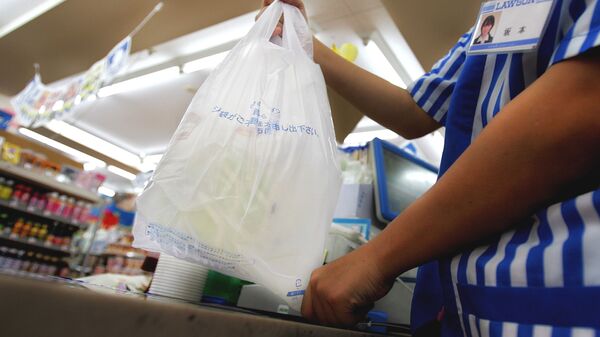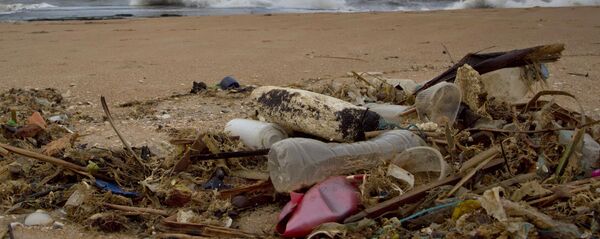Merely four months since Sweden's new tax on plastic bags, touted as a step toward a greener world, came into force, it is now being judged by experts as a massive failure. The environmental impact has increased, tax revenues have not been achieved and there is now a shortage of bags.
Since the tax was introduced, sales of taxed plastic bags have decreased by 70 percent at Ica, the country's leading market retailer. At the same time, Ica's sales of waste bags on a roll have increased by 60 percent and paper bags sales are up 70 percent, Fplus, a news outlet run by the Confederation of Swedish Enterprise reported.
The much-debated tax has spurred many to forego plastic bags, instead taking paper bags or waste bags on a roll, which have been deemed even worse for the environment.
The expected extra income for the state has failed to materialise as well, as fewer and fewer Swedes buy plastic bags. According to previous estimations, the tax was to 'bag' state coffers an extra SEK 2 billion this year alone ($230 million), but after a couple of months had merely brought in 50 million ($5.7 million).
Even before its introduction on 1 May, the tax on plastic bags, championed by the government in a bid to reduce littering, encourage re-use and make Swedish households more sustainable, was strongly criticised by its opponents, who accused it of “tokenism” and “virtue-signalling”.
“It is nothing more than new punitive taxation of trade and a way for politicians to pass on the costs to consumers,” Mats Hedenström, the head of business policy at Swedish Trade notoriously said.
The recent figures have triggered a new wave of criticism from experts.
“This is a bad tax for many reasons. One aspect is that the taxed bags, which aren't even an environmental problem, are replaced with products that are worse from an environmental point of view,” Runar Brännlund, a professor at the School of Business, Economics and Law at Umeå University, said.
“What are the benefits and what are the costs? It is pure common sense to find out and compare. You do not have to be a professor of economics to understand that,” Brännlund emphasised.
The Swedish Food Retailers Federation didn't mince any words either.
“This tax is completely wrong. It's something that looks good at a press conference or on social media, but is not really. Sustainability work is too important to be wasted on token issues,” its CEO Pär Bygdeson said.
Pär Bygdeson underscored that a paper bag is 43 times more environmentally damaging in its life cycle, whereas a cotton bag needs to be used 20,000 times to achieve the same environmental load as a disposable plastic bag.
“It is unreasonable! It does not lead to any climate effect and it does not reduce litter because we know that few of them end up in nature. We now really hope that the tax will be reviewed by politicians. Anyone who makes mistakes must be able to back down and do the right thing,” Bygdeson added.
The tax was introduced in a bid to achieve the goal of reducing the consumption of plastic carrier bags to 40 thin plastic bags per person per year by 2025, as ruled by the EU in 2015. Sweden's agenda for sustainable development has other ambitious goals of its own, including reducing emissions from transport by 70 percent and making all domestic flights free of fossil fuel.



